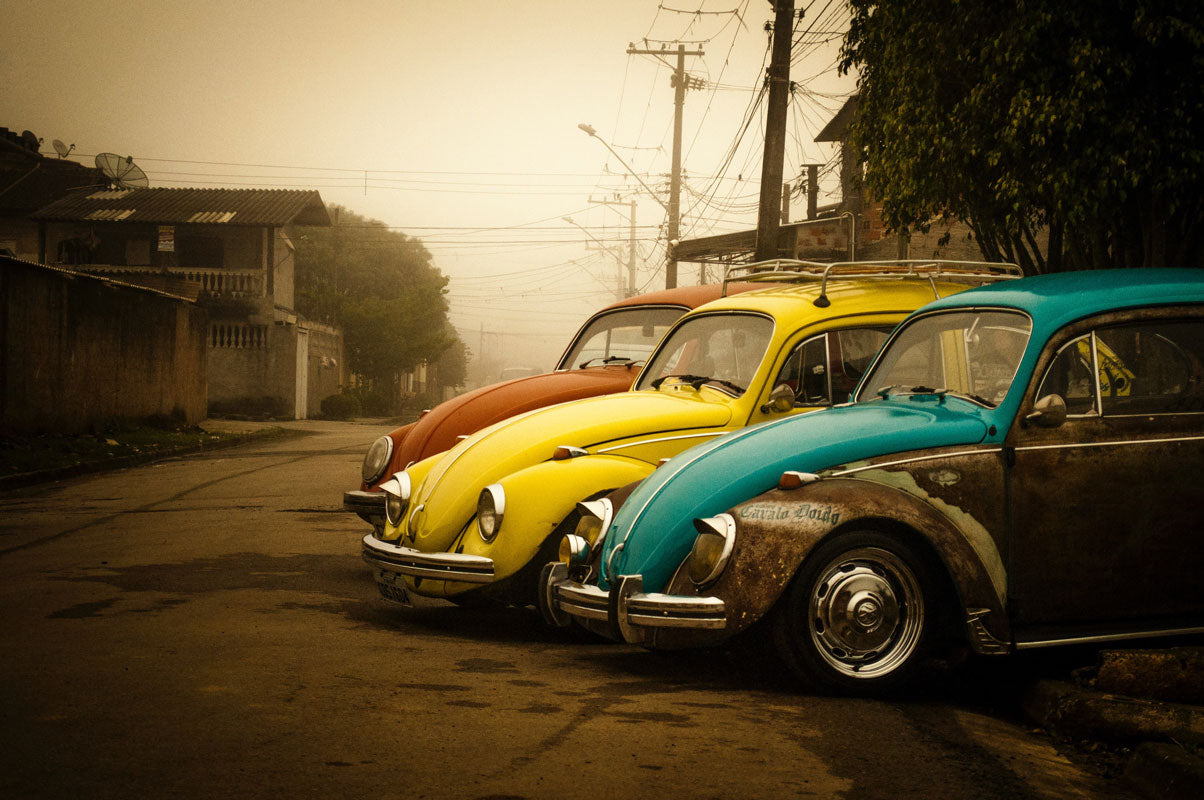Breathing Life into Classic Vehicles

Breathing Life into Classic Vehicles
Author : Douglas Landsborough
Editor : Jennifer J. Lacelle
Date : May 18, 2021
Housed in a historic building topped with a windmill, The Guild of Automotive Restorers is not only a staple in the town of Bradford West Gwillimbury, Ontario but has gained international renown and awards for the amazing work they do restoring classic vehicles.
The Guild started long before it opened its doors 30 years ago. When owners David Grainger and Janice Stone met years ago, David, who had already made a hobby of restoring vehicles, especially military ones, was impressed by the fact that Janice was “one of the two girls who took shop instead of home economics.” Their first dates involved going to junkyards and stripping pieces off old Mustangs togethe
It was Janice who encouraged David to take the next step in his hobby, asking him why he doesn’t work on something that someone might want to buy. That was the encouragement needed to purchase a ‘79 Corvette from Cookstown Auto Wreckers and painstakingly restore it.
While that first build was far from easy, it was the start of something big for both Janice and David. Their “hobby” quickly outgrew their two-car garage house out in the country. When they were approached to restore a ’59 Lincoln Continental, David knew that there was just no way he could do it in their current set-up.
That client, Angelo, wouldn’t let up, though. He asked if David and Janice wanted an investor and, coming in as a partner in what would be The Guild, Angelo set them up in an industrial shop in Aurora, Ontario. In no time they outgrew that space too. Expanding into the unit next to them, their shop then spanned 10,000 square feet of space. Even that wasn’t enough, though.
They have since moved to their current space at 44 Bridge Street in Bradford with 25,000 square feet, though David says they could easily fill a space double that size. On The Guild’s website, they explain that their large showroom has become more of a workshop due to the demand they experience.
RESTORATION HAS EVOLVED
Cars from the 20s and 30s, including dream cars like a 1920s Rolls-Royce, made their way through The Guild, rolling out as good as—or even better—than new. David also has a real fondness for some of the brass-era cars he’s been able to work on.
These were some of the first cars to actually function, a number of them made as early as 1901. They were very eccentric in how they were built, David explained, and it was a miracle some of them could even run at all. Within the industry, The Guild sees a 30-year wave that travels with them.
A lot of their clients are looking to restore cars they fell in love with when they were 19 and, now 30 or so years later and with the means to pay for it, are hoping to finally own that which they’ve been dreaming about their entire adult lives.
That means that many of the older cars—those from the 20s and 30s, even those from the 50s—aren’t in as high a demand anymore. These days, more than half of the cars The Guild restores are muscle cars like Camaros, Firebirds, Mustangs and others from the 80s and 90s. 1948 Delahaye. Photo credit: The Guild of Automotive Restorers By working through the ages, these cars present their own unique problems: some of the pieces the team needs to restore them are either poorly made or just irreplaceable.
For older cars, the parts were simpler and could easily be made in-house. But restorations of cars from the 80s and 90s means dealing with the onset of electronics in vehicles—electronics that struggled to function at the best of times. But that doesn’t mean that the talented people at The Guild aren’t up to the task.
IN-HOUSE PERFECTION e
In addition to producing high-quality work for their customers, The Guild has won international awards for their craftsmanship. They took home the title for most elegant interior at the Concorso d’Eleganza Villa d’Este in Italy and won the International Historic Motor Vehicle of the Year in 2013 for their Bugatti Aerolithe, which their shop reconstructed out of magnesium.
These days though, The Guild is just too busy to keep up with show crawling. Prior to the pandemic, they had been to Pebble Beach for 20 years in a row, and their work would, without fail, catch the eyes of notable designers and experts there and anywhere else they go. But it has never been about the trophies for David, Janice and The Guild.
It has always been about the passion behind restoring classic cars and producing the best possible work they can.
TODAY’S RESTORATION TRENDS
While someone might want a hot rod, they also want modern luxuries like cupholders, satellite radio, air conditioning, and so on. There are some purists who resist the idea of restomods, but that thinking is fading away. Practicality, reliability, comfort and, ultimately, safety are all increased through restomods without sacrificing the look or experience of a classic car. Something that David is seeing more and more—and something that he is looking to do more of—is converting old cars to electric vehicles.
Ten years ago, he said, it wasn’t even possible. But with better, more efficient batteries, they are able to make gorgeous classics into something that is as environmentally responsible as it is beautiful. That’s not to say that you can take all-day road trips on a single charge, but electric restomods are more than capable of getting you out for a couple hours or taking the family to get a cold treat on a hot summer day. No matter what a client needs, there is little, if anything, the team at The Guild can’t do.
With thousands of restorations under their belt, The Guild of Automotive Restorers are more than experts in the field of restoration. They take their clients’ dreams and passions and make them real. And who else can say that they do something like that?
